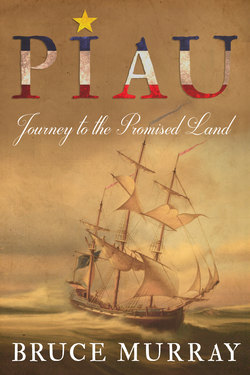Читать книгу Piau - Bruce Monk Murray - Страница 4
На сайте Литреса книга снята с продажи.
Foreword
ОглавлениеEven as a young child, my brother Bruce had an insatiable curiosity. It wasn’t unusual to see him rummaging through drawers, peering into our family’s old cedar chest, or sneaking into the attic to discover untold secrets and treasures.
He loved the company of older folks, who would regale him with stories of their childhoods and family history while he peppered them with questions and begged to see pictures.
He was fascinated with graveyards and visited them every chance he could get.
So, it was no surprise to anyone when he chose to study history in university.
By the time my brother had made the decision to enter show business, after six years of university, he was already a trained historian. He sang back-up for me both on tour and on several of my albums. In the years we toured the world together, he carried his passion for history with him, seeking out landmarks of significance everywhere we performed. Celebrity had made me reclusive and he would drag me from my hotel room and insist that I accompany him. Each tour was a fascinating history lesson and his enthusiasm was infectious. He singlehandedly changed my lonely life on the road.
I remember him forcing our chauffeur to stop at a churchyard in the English countryside so that he could stand over the gravesite of Winston Churchill. I must say that I was caught up in that special moment, too.
So when Bruce informed me that he was writing a historical novel based on the life of Piau Belliveau, it seemed like the natural thing. After all, Piau had been part of our family folklore for as long as I can remember.
In the book, my brother summons our Acadian ancestors, skillfully weaving their stories into the fabric of the novel and lacing them with such passion and detail that they are hard to resist. Knowing that the majority of the characters existed, and the events actually occurred, allows the reader to be easily transported back in time, unconcerned about which of them is fictional and which is historical.
I felt it was very courageous of Bruce to allow Piau to tell his own story. It is a risky business to channel the thoughts and words of a main character. It reads as a memoir but has the sense of a journal being written. Allowing Piau’s voice to be heard makes the narrative sound more authentic. Seeing the historical players in the story through Piau’s eyes allows the reader to penetrate his character and experience the people around him in an almost mystical way.
And there is Piau’s singing voice, a personal touch, coming from an author who himself has an extraordinary singing voice. We were told that our great-grandfather Damien Belliveau, a descendent of the novel’s hero, was famous throughout the Acadian community for his magnificent singing voice. Using song in the novel to add the special meaning that music provides in the everyday lives of people everywhere is a nice touch and resonates to my very core! The times of celebration and sorrow in Piau are accompanied by French songs from the period, songs that tug at the reader’s heart- strings. And of course, the unique sound and tone of my voice and that of my brother’s had to have come from somewhere. Why not from Piau?
I cannot ignore the perilous and heartbreaking journey that the Acadians were forced to endure during the Acadian Expulsion. When I filmed a music special for television several years ago in my native Nova Scotia, one of the filming sites was the Church of St. Charles at Grand Pré, the place where Acadian men were torn from their families, homes, and lives, were locked up in the church, and finally packed off on to ships and inhumanely exiled to far-off places. As I toured the museum, I found myself imagining the hopeless cries of the mothers and children. I became so overcome by the feeling that this place created in me that I found it difficult to proceed with the taping. I recovered, however, and proceeded to tell Piau’s story on camera: of his capturing of a British ship and the violent encounter that event created. I will leave that story to the storyteller here but I must say reading the novel resurrects those intense emotions in me.
The story my brother has told is not only an Acadian story; it has a universal message. Those who were affected by this tragic story and survived, have descendants in all parts of the globe. Because this is such a momentous event in our history, its story is remembered by hundreds of thousands of people of Acadian descent throughout the world. Piau represents just one of these amazing stories and the tale of his courageous journey has been long overdue in the telling and deserves to finally be heard.
— Anne Murray
